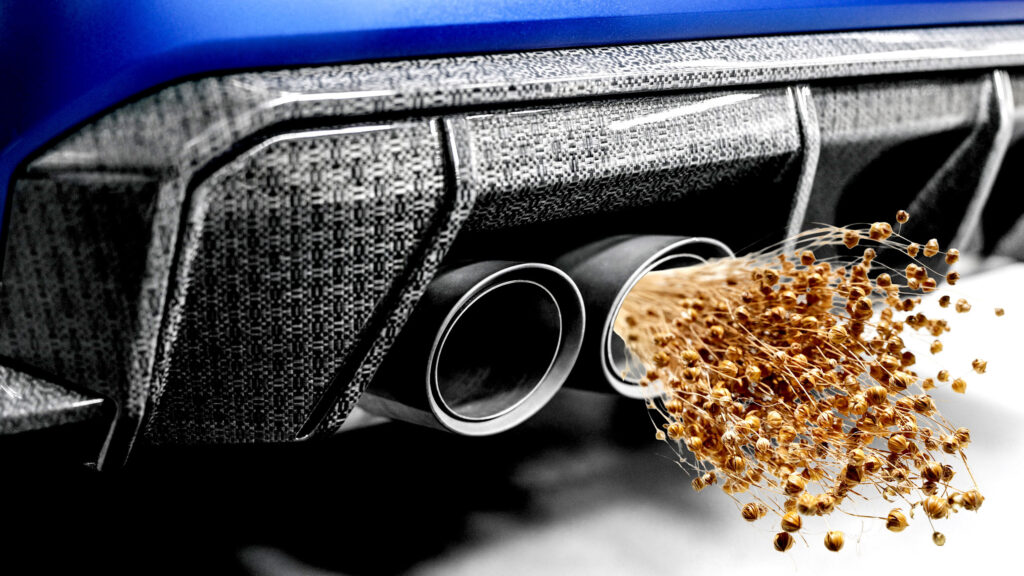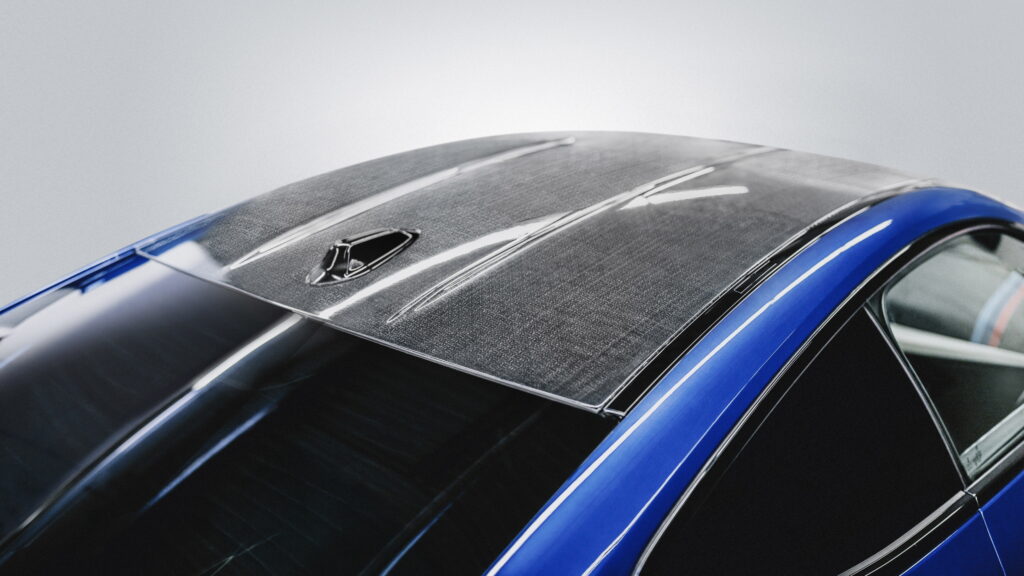BMW’s Green Shift

Here’s some exciting news from the world of BMW: they’ve been working hard on a new kind of lightweight material that might just give carbon fiber a run for its money. Partnering with Swiss company Bcomp, BMW has innovated natural fiber composites. These are constructed primarily from flax, the same plant that gives us linen, and promise not only high performance but also a significant reduction in CO2 emissions. After being put through the wringer in the intense world of motorsport, these materials are now gearing up for everyday BMW cars.
The Material

Developed over several years, this flax-based composite is designed to be renewable and more environmentally friendly at the end of its life than traditional materials. The real magic here is in maintaining the aesthetic and performance benefits of carbon fiber, but with a far less harmful environmental impact.
Bcomp—a company also backed by giants like Porsche and Volvo—has crafted these materials to reduce the carbon footprint without compromising strength or style. Photos from BMW show these glossy, fiber-patterned parts on models like the BMW M4 Coupe, with components like roofs and rear diffusers getting the eco-friendly treatment.
Behind the Wheel
Imagine driving a car that’s not only sleek and powerful but also a step toward a sustainable future. That’s what the inclusion of these new materials aims to achieve. In terms of aesthetics, the composite’s unique texture gives the car a distinctive look—think of the refined swagger that comes with carbon fiber, but with a nod to sustainability.
Behind the wheel, the experience remains uncompromised. Thanks to its strength, this material holds up to racing standards, meeting rigorous testing in BMW’s motorsport vehicles before transitioning into consumer cars. The stimulating driving dynamics BMW is known for are maintained, ensuring that performance enthusiasts won’t feel any sacrifice.
Environmental Perks
Switching to these natural fiber composites could lead to a 40% drop in CO2 emissions for parts like the roof. This contributes to a greater emphasis on eco-conscious engineering, aligning with BMW’s commitment to sustainability without losing sight of the performance focus that defines the brand.
Initially utilized in the BMW Motorsport scene, particularly in the Formula E cars and the race-ready M4 models, this green approach will now be put to the test in one of the most demanding endurance races, the 24 Hours of Nurburgring. This marks a significant broadening of applications, pointing to a future where these composites might become mainstream in BMW’s lineup.
What’s Next?
As the industry moves toward eco-friendly solutions, these flax-based components might soon appear as optional upgrades for BMW enthusiasts. While they are not likely to replace carbon fiber options across all models yet, the innovative leap gives a glimpse into a cleaner future for performance cars.
BMW’s CEO of the M division, Franciscus van Meel, has highlighted these natural fiber composites as essential in creating lightweight, high-performance solutions in motorsport. It’s a fascinating step forward as BMW seeks to blend superior driving dynamics with responsible material sourcing.
Honda Unveils eQuad
Tilting Urban EV
Ferrari EV Delay
Custom Ferrari F40 Fever
Audi's Design Shift